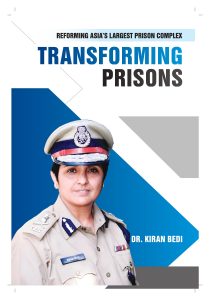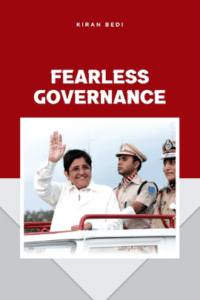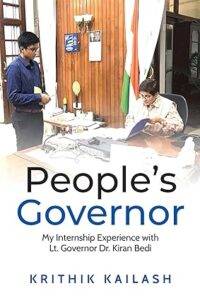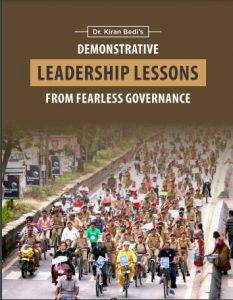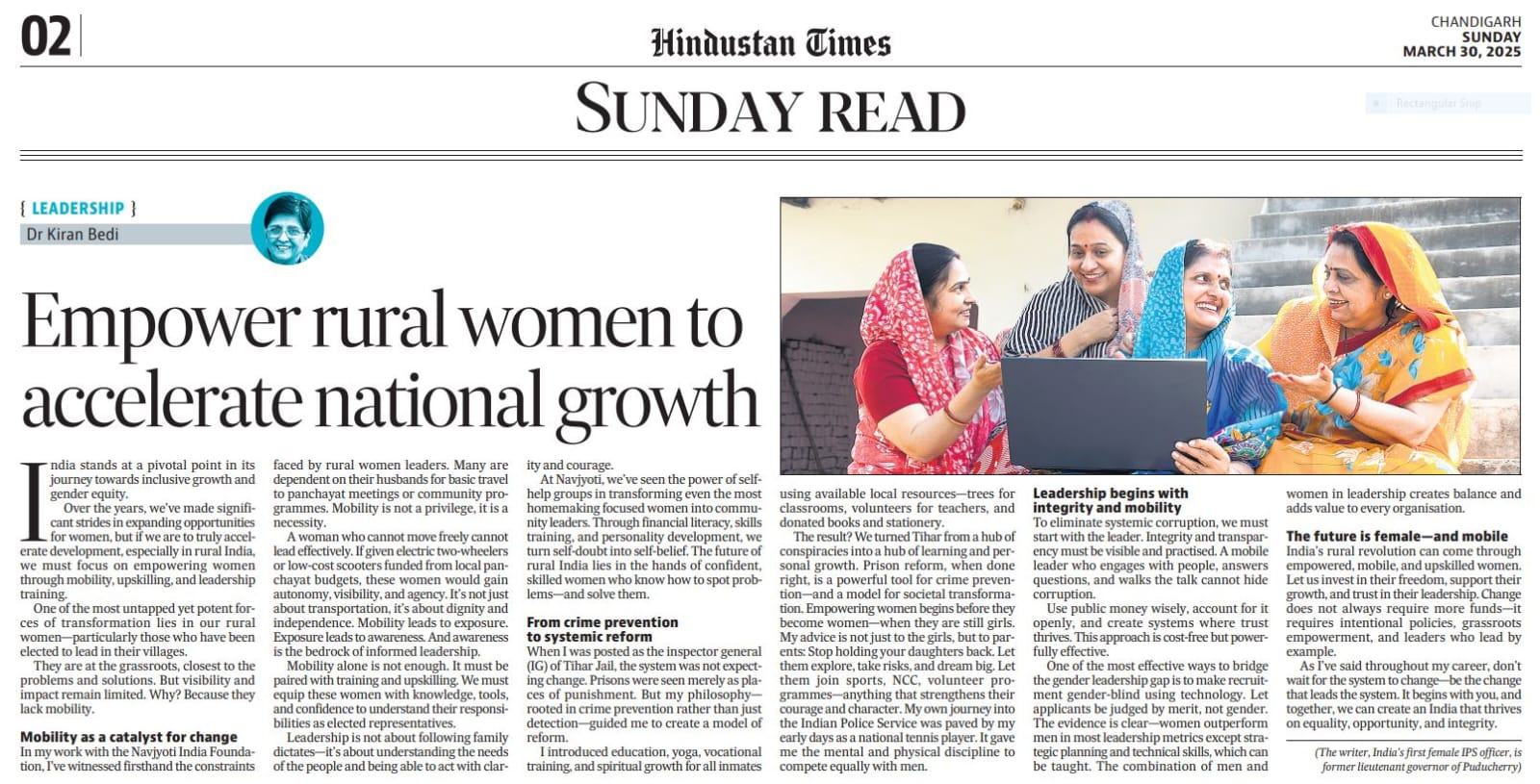
Leadership | Empower rural women to accelerate national growth
India stands at a pivotal point in its journey towards inclusive growth and gender equity. Over the years, we’ve made significant strides in expanding opportunities for women, but if we are to truly accelerate development, especially in rural India, we must focus on empowering women through mobility, upskilling, and leadership training.
One of the most untapped yet potent forces of transformation lies in our rural women—particularly those who have been elected to lead in their villages. They are at the grassroots, closest to the problems and solutions. But visibility and impact remain limited. Why? Because they lack mobility.
Mobility as a catalyst for change
In my work with the Navjyoti India Foundation, I’ve witnessed firsthand the constraints faced by rural women leaders. Many are dependent on their husbands for basic travel to panchayat meetings or community programmes. Mobility is not a privilege, it is a necessity. A woman who cannot move freely cannot lead effectively. If given electric two-wheelers or low-cost scooters funded from local panchayat budgets, these women would gain autonomy, visibility, and agency. It’s not just about transportation, it’s about dignity and independence.
Mobility leads to exposure. Exposure leads to awareness. And awareness is the bedrock of informed leadership.
Mobility alone is not enough. It must be paired with training and upskilling. We must equip these women with knowledge, tools, and confidence to understand their responsibilities as elected representatives. Leadership is not about following family dictates—it’s about understanding the needs of the people and being able to act with clarity and courage.
Which Indian city has the best quality of living?DelhiMumbaiBengaluruAt Navjyoti, we’ve seen the power of self-help groups in transforming even the most homemaking focused women into community leaders. Through financial literacy, skills training, and personality development, we turn self-doubt into self-belief. The future of rural India lies in the hands of confident, skilled women who know how to spot problems—and solve them.
From crime prevention to systemic reform
When I was posted as the inspector general (IG) of Tihar Jail, the system was not expecting change. Prisons were seen merely as places of punishment. But my philosophy—rooted in crime prevention rather than just detection—guided me to create a model of reform. I introduced education, yoga, vocational training, and spiritual growth for all inmates using available local resources—trees for classrooms, volunteers for teachers, and donated books and stationery.
The result? We turned Tihar from a hub of conspiracies into a hub of learning and personal growth. Prison reform, when done right, is a powerful tool for crime prevention—and a model for societal transformation.
Empowering women begins before they become women—when they are still girls. My advice is not just to the girls, but to parents: Stop holding your daughters back. Let them explore, take risks, and dream big. Let them join sports, NCC, volunteer programmes—anything that strengthens their courage and character. My own journey into the Indian Police Service (IPS) was paved by my early days as a national tennis player. It gave me the mental and physical discipline to compete equally with men.
Leadership begins with integrity and mobility
To eliminate systemic corruption, we must start with the leader. Integrity and transparency must be visible and practised. A mobile leader who engages with people, answers questions, and walks the talk cannot hide corruption. Use public money wisely, account for it openly, and create systems where trust thrives. This approach is cost-free but powerfully effective.
One of the most effective ways to bridge the gender leadership gap is to make recruitment gender-blind using technology. Let applicants be judged by merit, not gender. The evidence is clear—women outperform men in most leadership metrics except strategic planning and technical skills, which can be taught. The combination of men and women in leadership creates balance and adds value to every organisation.
The future is female—and mobile
India’s rural revolution can come through empowered, mobile, and upskilled women. Let us invest in their freedom, support their growth, and trust in their leadership. Change does not always require more funds—it requires intentional policies, grassroots empowerment, and leaders who lead by example.
As I’ve said throughout my career, don’t wait for the system to change—be the change that leads the system. It begins with you, and together, we can create an India that thrives on equality, opportunity, and integrity.
(The writer, India’s first female IPS officer, is former lieutenant governor of Puducherry)



